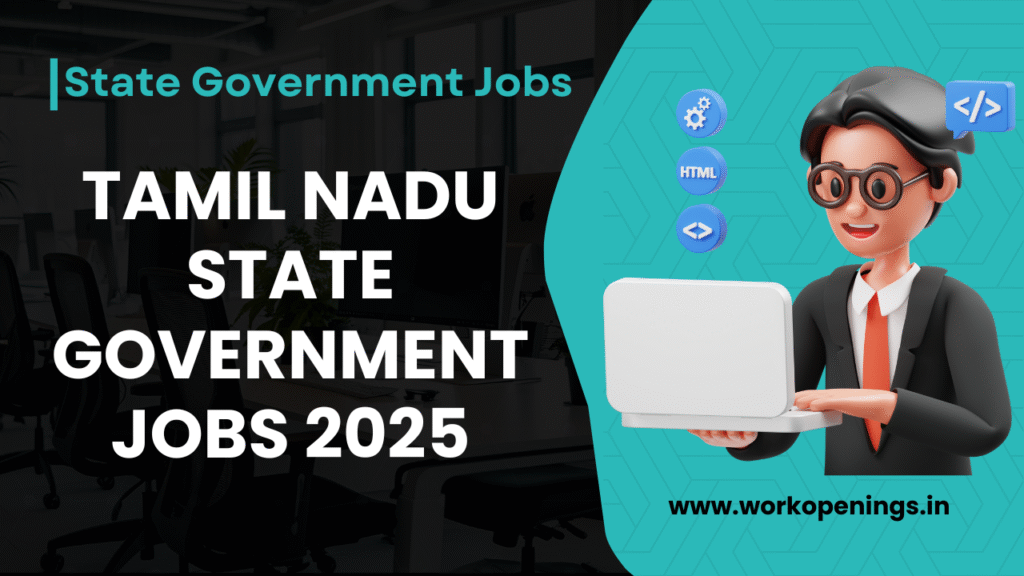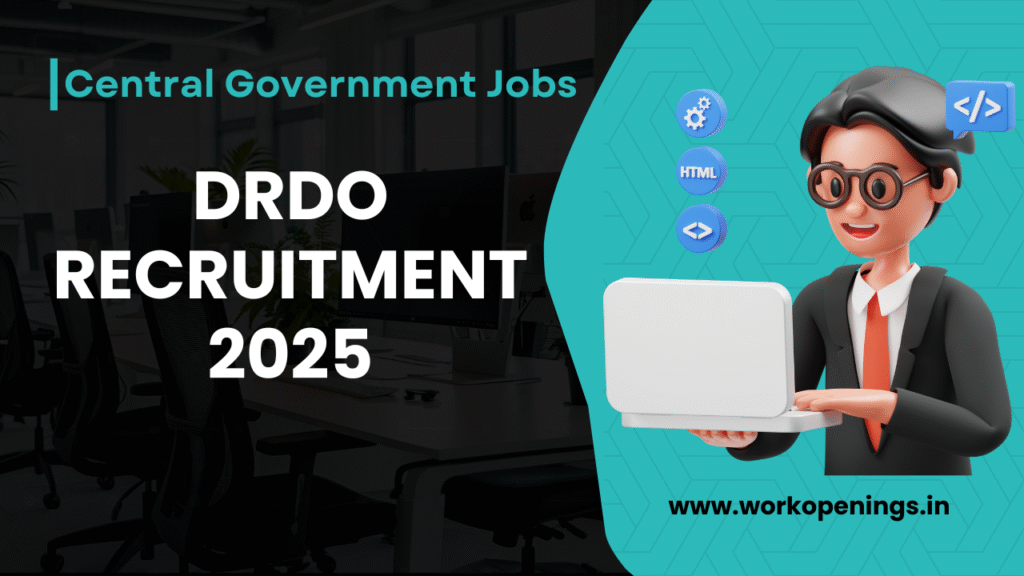The dream of securing a ‘Sarkari Naukri’ continues to be a powerful aspiration for millions across India in 2025. A government job represents a life of stability, social prestige, attractive perks, and the unique opportunity to serve the nation. However, as you stand at this crucial career crossroads, the sheer number of options can be overwhelming. From the prestigious All India Services like IAS and IPS to technical roles in PSUs, and from national-level SSC posts to jobs in your home state like TNPSC, the choices are endless. This leads to the most critical question: How to choose the right government job for you?
Making the wrong choice can lead to years of misdirected effort, frustration, and a career that doesn’t align with your personality or life goals. This is not just about clearing an exam; it’s about building a fulfilling life. This comprehensive guide will walk you through a step-by-step process, providing a clear framework to help you navigate the complex world of public sector employment and make an informed decision that sets you up for success.
Table of Contents
Step 1: Begin with Self-Assessment – Know Yourself First
Before you dive into a sea of exam notifications and syllabi, the first and most important step is to look inward. Understanding your own qualifications, personality, and aspirations is the foundation of figuring out how to choose the right government job.
A. Your Educational Background and Core Subjects
Your academic qualifications are your primary eligibility filter.
- Engineering Graduates: You have a wide array of options. You can aim for technical posts through exams like the Engineering Services Examination (ESE), PSU recruitment through GATE, or jobs like Junior Engineer (JE) in Railways (RRB). At the same time, your analytical skills make you a strong candidate for generalist roles like SSC CGL and UPSC Civil Services.
- Arts & Humanities Graduates: You are perfectly suited for the UPSC Civil Services, State PSCs, SSC CGL, and Bank PO exams, where strong writing, comprehension, and analytical skills are highly valued.
- Commerce Graduates: You have an edge in exams for roles like an Accountant, Auditor (CAG), and various positions in the finance and accounts departments of government bodies, including Bank PO and RBI Grade B.
- Science Graduates: Besides generalist exams, you can explore scientific and research-oriented organizations like ISRO, DRDO, and BARC.
Actionable Tip: List the top 5 government jobs for which your degree makes you directly eligible. This is your initial pool of options.
B. Personality Traits and Interests

Are you an extrovert who thrives on public interaction, or an introvert who prefers focused, analytical work?
- Field Jobs: If you are adventurous, enjoy challenges, and like being on the move, a uniformed service like the Indian Police Service (IPS), State Police, or roles in the Armed Forces could be your calling. Jobs like an Inspector in excise or customs also involve significant fieldwork.
- Desk Jobs: If you prefer a structured environment, a 9-to-5 routine, and policy-focused work, then posts like Assistant Section Officer (ASO) in the Central Secretariat (via SSC CGL), a Bank Clerk, or administrative roles within ministries would be a better fit.
Understanding this distinction is a crucial part of the process of how to choose the right government job.
C. Your Long-Term Career and Life Goals
Where do you see yourself in 20 years?
- Power and Influence: If your goal is to be in a position of authority and drive policy changes at a high level, then the Civil Services (UPSC or State PSC) are the undisputed choice.
- Financial Prosperity: While most government jobs offer good salaries post the 7th Pay Commission, roles like RBI Grade B officer or specialist officers in certain PSUs are known for being particularly lucrative.
- Work-Life Balance: If spending quality time with family is your top priority, you might want to avoid high-pressure, 24/7 roles. A teaching job or a clerical position might offer a more predictable and balanced lifestyle.
Step 2: Understand the Landscape – Central vs. State Jobs
The next big decision is choosing your administrative domain: the Government of India or your own State Government. This choice impacts everything from your salary to where you will live.
| Feature | Central Government Jobs (UPSC, SSC, RRB) | State Government Jobs (TNPSC, UPPSC, etc.) |
| Salary & Perks | Generally higher and more uniform. Timely implementation of Pay Commissions. | Can be slightly lower. Pay Commission benefits might be delayed. |
| Transfers | Pan-India transfer liability. You can be posted anywhere in the country. | Postings are restricted within the boundaries of the home state. |
| Career Growth | Often faster, more structured, and with wider scope for promotions. | Can be slower and sometimes influenced by local political factors. |
| Work Culture | Generally more formal, professional, and diverse. | More influenced by regional culture and language. |
| Prestige | Carries national-level prestige (e.g., an IAS officer). | High influence and recognition at the local, state level (e.g., a Deputy Collector). |
This Central vs. State debate is a cornerstone of the puzzle of how to choose the right government job. If you value staying close to your roots and family in places like Coimbatore, a TNPSC job is ideal. If you are excited by the prospect of exploring India’s diversity, a central job is for you.
Step 3: Deep Dive into Job Profiles and Responsibilities
Don’t just go by the title of a post. Research what the job actually entails on a day-to-day basis.
- Group ‘A’ (Administrative/Executive): This includes the All India Services (IAS, IPS, IFS) and Central Services recruited through UPSC, as well as State PSC officers. These roles are about high-level management, policy formulation, and public administration. The work is dynamic and challenging but comes with immense responsibility and pressure.
- Group ‘B’ (Gazetted & Non-Gazetted): This is a vast category. It includes roles like Section Officers, Income Tax/Excise Inspectors (via SSC CGL), Bank POs, and Station Masters (RRB NTPC). These are mid-level roles that form the backbone of the government machinery. They offer a good blend of responsibility and work-life balance.
- Group ‘C’ & ‘D’ (Clerical/Support): This includes roles like Lower Division Clerk (LDC), Multi-Tasking Staff (MTS), and Constables. These are entry-level positions focused on carrying out routine administrative and support tasks. They offer great job security and are an excellent stepping stone for departmental promotions.
Researching these profiles on platforms like YouTube, where current officers share their experiences, can provide invaluable insights for anyone wondering how to choose the right government job.
Step 4: Realistically Evaluate the Exam and Competition
Being passionate is good, but being practical is essential. Every exam has a different character.
A. Syllabus and Exam Pattern
Analyse the syllabus in detail. Do the subjects genuinely interest you?
- UPSC CSE: Requires a generalist approach with a vast syllabus covering everything from ancient history to international relations. Requires years of dedicated, integrated study.
- SSC CGL/CHSL: Focuses heavily on four pillars: Quantitative Aptitude, Reasoning, English, and General Awareness. Requires speed and accuracy.
- Bank Exams (IBPS/SBI): Similar to SSC but with a greater emphasis on Data Interpretation, Puzzles, and Banking Awareness.
- State PSCs: The syllabus overlaps with UPSC but includes a significant portion dedicated to the state’s history, geography, and culture, often with a compulsory regional language paper. For a resident of Tamil Nadu, the TNPSC syllabus might feel more manageable.
Your comfort with the syllabus is a massive factor in how to choose the right government job exam to target.
B. Competition and Vacancies
Be aware of the competition you are up against. Central exams like UPSC and SSC CGL attract tens of lakhs of applicants from across India for a few thousand posts. The competition is astronomical. In state exams, the competition is largely, though not exclusively, from within the state. While still intense, the competition pool is smaller. Always check the vacancy-to-applicant ratio from previous years to get a realistic picture.
Step 5: Prioritise Your Lifestyle and Personal Needs

Finally, a job is a part of your life, not your entire life. Your personal priorities are non-negotiable.
- Location, Location, Location: As discussed, the transfer policy is a huge factor. Can your family handle frequent relocations? Do you have responsibilities like caring for elderly parents that require you to stay in your hometown? Answering these questions is fundamental to your choice.
- Work-Life Balance: Are you willing to be on call 24/7 in a high-pressure role like a police officer, or do you need a job with predictable working hours that allows you to pursue hobbies and spend time with family? Be honest with yourself. This is perhaps the most personal aspect of how to choose the right government job.
- Social Circle and Culture: A state government job allows you to work and live within a familiar cultural milieu and social network. A central government job will constantly push you into new environments, which can be both exciting and isolating.
Conclusion: The “Right” Job is a Personal Choice
As we’ve seen, the process of how to choose the right government job is not about finding a universally “best” option. The best job for your friend might be the worst for you. The “right” job is one that perfectly intersects with your educational background, your innate personality, your long-term ambitions, and your lifestyle needs.
Follow this five-step process:
- Assess Yourself: Your education, personality, and goals.
- Understand the Field: Central vs. State jobs.
- Research the Roles: What does the job actually involve?
- Evaluate the Exam: Syllabus, competition, and effort.
- Consider Your Life: Location, balance, and personal priorities.
By systematically working through these steps, you move from a state of confusion to one of clarity. You create a shortlist of 2-3 specific job profiles that are the best fit for you. This focused approach will not only save you time and energy but will also dramatically increase your chances of not just clearing an exam, but building a career that brings you satisfaction and happiness for decades to come.
Frequently Asked Questions (FAQs)
Q1: Which government job has the highest salary in 2025? A: Generally, Group ‘A’ posts in the All India Services (IAS, IFS) and officers in the RBI (Grade B) are among the highest-paid government jobs in India, considering their basic pay, allowances, and perks.
Q2: Is a state government job easier to get than a central government job? A: “Easier” is subjective. State jobs have a smaller competition pool (mostly from within the state), but often have fewer vacancies. Central jobs have massive all-India competition but may offer more vacancies. The difficulty depends on the specific exam and your preparation level.
Q3: Can I prepare for UPSC and a State PSC exam like TNPSC simultaneously? A: Yes, it’s a common strategy as there is a significant overlap in the core syllabus (Polity, History, Economy, etc.). However, you must dedicate separate, focused time for the state-specific GK, culture, and language papers of the State PSC exam.
Q4: Which is better for work-life balance, a bank job or an SSC CGL job? A: Generally, an SSC CGL post like Assistant Section Officer in a central ministry is considered to offer a better work-life balance with fixed 9-to-5 working hours compared to a Bank PO job, which can have longer hours, high pressure, and frequent rural postings.
Q5: I am confused between a technical job based on my engineering degree and a generalist job like SSC CGL. How do I decide? A: This goes back to Step 1: Self-Assessment. If you are passionate about your core engineering field and want to build a career in it, aim for technical jobs (ESE, PSUs). If you see engineering simply as a degree and are more interested in administrative work, policy, or public dealing, then a generalist job is an excellent choice. This is a classic dilemma where the guide on how to choose the right government job can be most helpful.

